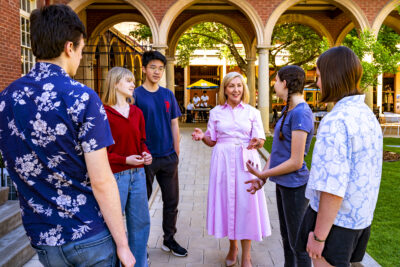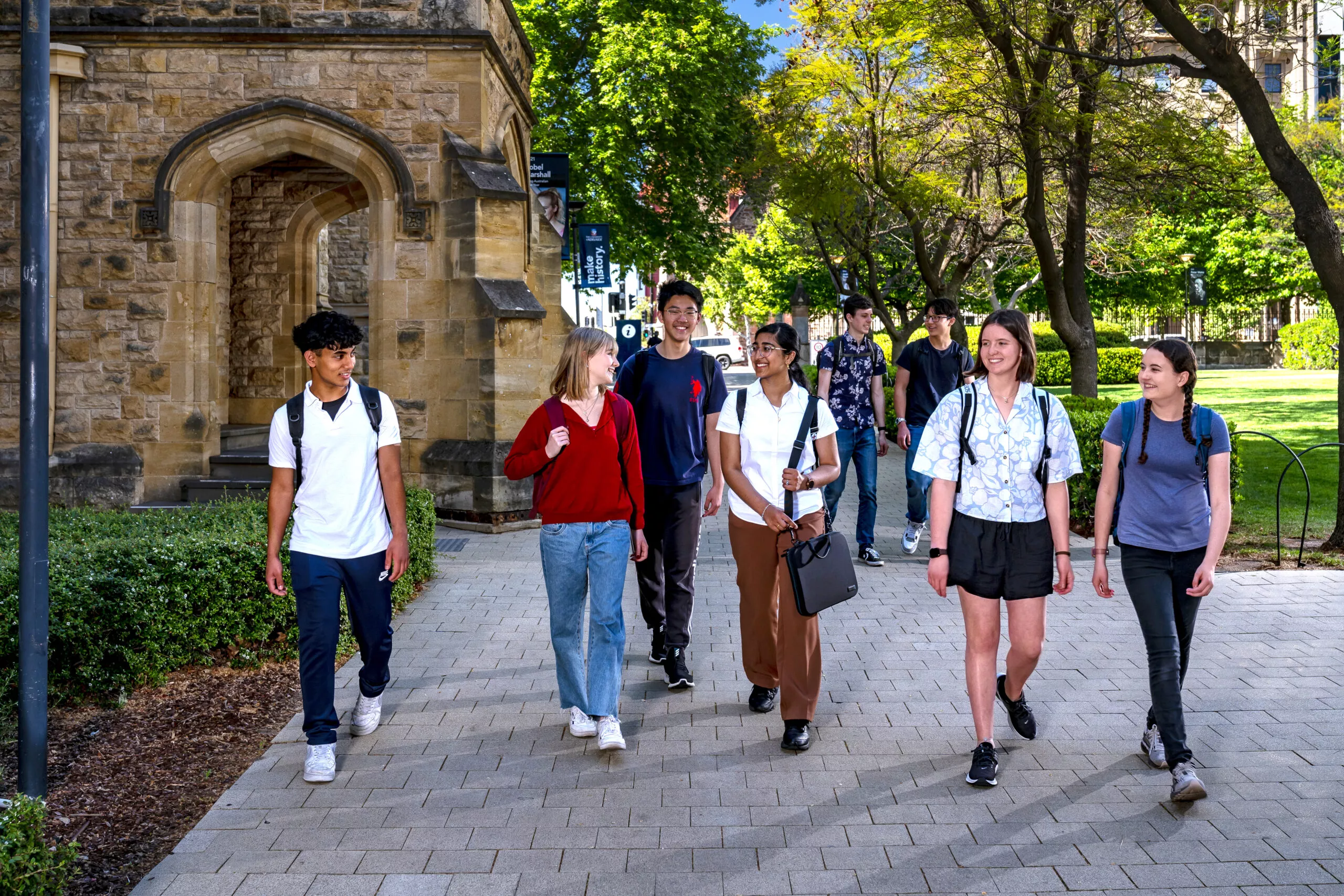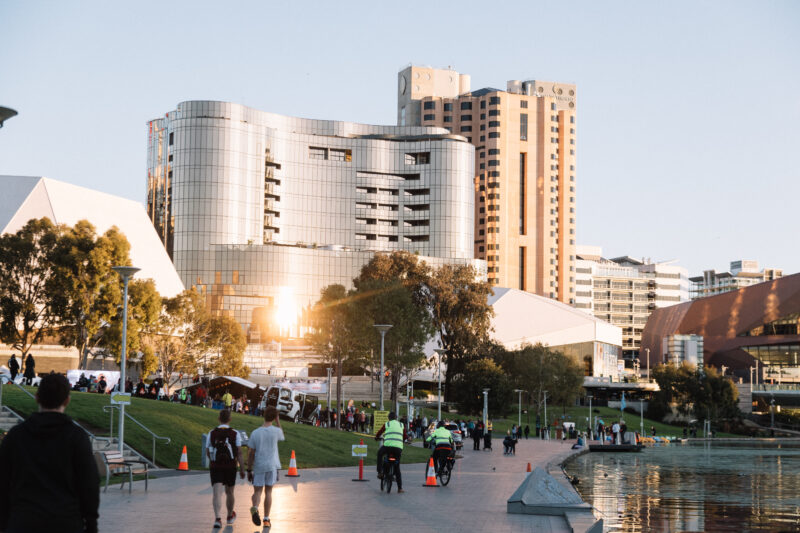University Senior College is making innovation a priority with the help of market research
University Senior College (USC) engaged the help of the Square Holes team in May this year (2023) to connect with their community and explore innovation priorities, including online education opportunities, with a view to the future.
Created to provide prospective students with an alternate adult learning environment, USC acts as a feeder school into the university sector in South Australia and prides itself on providing a strong independent learning culture and pathway to further study.
With this in mind and coming off the back of the need for agile solutions to covid disruptions, the leadership team acknowledged an imperative to explore the perspectives of the College community, including students, parents and staff to help inform potential possibilities and future strategies.
Vanessa Grave, Director of Marketing and Community Relations, USC says that the research was about taking stock of how the institution is currently viewed by community members, while also helping to unearth potential roads to innovation.
“We are at this position that the school is a high performing school, and we also have to look into the future of how we can add value, and also to reflect on and improve our practice, but to actually double check what our stakeholders are thinking,” says Grave.
“But it was more importantly generated by the fact, let’s look at, from the pandemic, all the flexible approaches that we had. What worked? What can we be doing to move the school into an innovative space to continue meeting the new generation of learners that are coming to the school? With this in mind, we did the research to help explore innovation priorities.”
Innovation is a cornerstone of the USC offering, with the independent secondary school promising students that they will be “challenged to be a creative thinker, building skills in resilience and innovation.”

As Grave states, “Part of our strategic plan is that USC is on the forefront of trends, and we’ve got aspirational students here who are looking for an academic pathway to university. They’re going to be change agents to society once they graduate. And it’s important that the school is on the front foot of change because we’ve got students who are going to be living and creating that change.”
Vanessa adds that the driving impetus around the study was the rapidly changing education landscape in South Australia. She posits that the upcoming merge between the University of Adelaide and the University of South Australia has created an environment where institutions are being prompted to interrogate how they will adapt and grow into the future.
“We want to strengthen what we do, but also move to new directions because teaching and learning is now going through the greatest change it’s ever had in my career in the last five years,” says Grave.
“When those two universities (The University of Adelaide and University of South Australia) merge, they’re actually reflecting on their practice and they’re changing the way they do things to meet the modern needs of the next generation of students… We need to be on the front foot of that. We are, and this information from Square Holes has also helped us in that.”
Consisting of both an online survey and focus groups that engaged staff, students and parents, the research has assisted Vanessa and her team as well as the College’s Leadership Team to drill down into what makes USC an attractive alternative to mainstream schools, while also driving some strategic goals moving forward.
“There are some parallels, but there are some things that are more valued by different groups, which is good to see. And it’s really clear,” says Grave.
“We’ve just redone our strategic plan as a leadership team, school council and staff. And we’ve taken some of this data on board to drive that because we really want it to be bold and we really want to drive the school forward.”
Market research is one tool that the school is using in order to stay agile, while another is keeping up to date with AI literacy and technology so that their students are prepared for the jobs of future.
“Obviously it’s a changing space all the time, so we’ve just got to roll with it and change it and address it. But we are also looking at having AI literacy implemented across the school and talking about digital literacy years ago when that first came into schools, and having students understand what that literacy is trying to say to us in a digital form, and AI is no different,” says Grave.
“It’s always going to be part of our life, and it’s changing constantly. We are looking at active learning spaces and how we incorporate and integrate technology into everyday learning because we want our teachers to be consistent with that delivery.”
The study has also illuminated some exciting opportunities for 2024, with the Square Holes team digging into the research to unearth some further insights outside of the scope of the proposed project.
“I did ask Jason (Dunstone, Managing Director Square Holes), with all the data that you’ve heard and listened to and we’ve got here, if you see something else that we could be doing that would generate a new interest or a new educational stream for us, I’d be interested for you to identify that,” says Grave.
“There were one or two things that were identified that we’re going to explore next year in 2024.”




